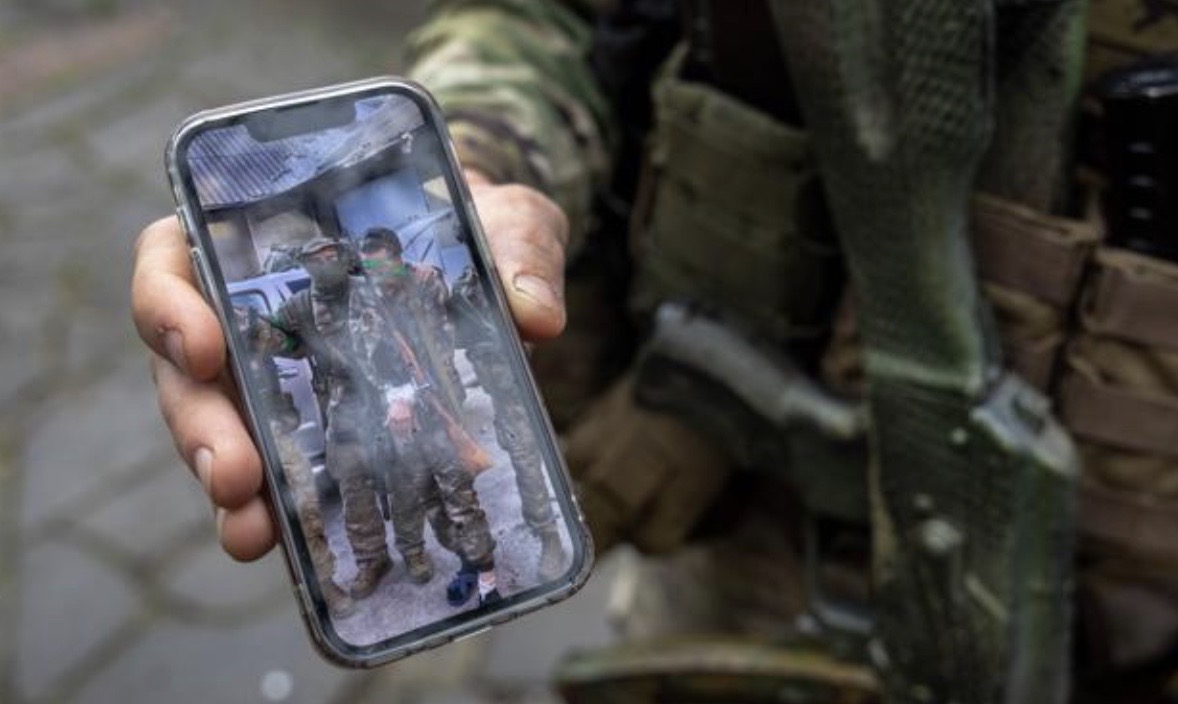Using a cell phone can cost you your life. It's not a paradox, but when you're at war, sending a single message over the data network can give the enemy your exact location on the battlefield leaving you vulnerable. The United States and its allies have watched this phenomenon with some concern. In Iraq and Afghanistan, the locations of American troops and their allies were widely known to their enemies, who, fortunately, didn't have the long-range weapons. In 2018, data from a fitness app revealed the locations and habits of US military bases and personnel, including those of US forces in Iraq and Syria.
Early in their invasion of Ukraine, Russian servicemen approaching the capital, Kiev, made cell phone calls and uploaded videos to TikTok, revealing their location. The Ukrainians have used such cell phone signals to launch missiles at their position, with devastating effect. The event is taken as “lessons learned” in the briefings that military leaders give to their troops every day at the front.
Now, almost a year later and despite the ban on personal cell phones, Russian soldiers in the war zone are still using them to call their wives, girlfriends, parents, thus exposing themselves to Ukrainian attacks. After an attack that killed dozens – perhaps hundreds – of Russian soldiers this week, one of the deadliest since the invasion began, the Russian military itself has acknowledged the problem, a fancy way of justifying the heavy losses it has suffered.
"It is clear that the main reason for what happened was the massive use of personal cell phones within the range of the enemy's weapons“, the Russian Defense Ministry said in a statement. Cell phone data, specifies the Defense, they allowed Ukraine to "determine the coordinates of the position of the Russian military to inflict a heavy missile attack”.
A Ukrainian official and a group of Russian bloggers claim that the Russian Defense is shifting the blame onto its soldiers. The Russian commanders, according to bloggers, instead amassed a large number of troops near the ammunition warehouses that exploded during the missile attack thus causing the massacre. It would not have been solely the fault of the use of personal cell phones.
While some Russian and Ukrainian units follow strict rules and ensure that cellphones are not near frontline positions, social media posts from the battlefield show that cellphone use among soldiers of both sides is still practiced disregarding the orders of their commanders.
New York Times interviews with Russian soldiers and taped phone calls intercepted by Ukrainian law enforcement during the war and obtained by The Times show that Russian commanders repeatedly attempted to keep phones away from the battlefield. Just before the invasion, Russian soldiers stationed in Belarus were told to give up their phones. In intercepted calls, Russian soldiers say commanders confiscated their cellphones in February. The soldiers, however, found ways around the rules. They stole the phones of Ukrainians, including those they had killed, and called Russia at home (telephone records in the possession of the Times prove this).
Some Russian soldiers, during their telephone conversations, have shown that they are aware that Ukrainian intelligence could have listened to them and for this reason they have weighed the use of words. However, the soldiers don't know that the only data from a "turned on" mobile phone can potentially betray them, because they manage to have their position pinpointed right up to the inside of a house.
According to US intelligence officials, some Russian generals spoke on unsafe telephones and radios early in the war, allowing the Ukrainians to locate and kill at least one general and his staff, thanks to an intercepted call. The generals later changed their method to using encrypted communications. The telephone numbers of commanders and those of their family members, for example, are absent from the telephone records the Times obtained from the Kyiv region.
The Russians are now targeting Ukraine's cell towers. In April in the eastern village of Husarivka, just three miles from the front lines, a group of civilians found a place in their tiny enclave where they could access mobile phone service. But not long after a dozen residents had gathered there to make phone calls, artillery shells began raining down.
But the Ukrainians on the front line have access to Starlink satellite internet, which means calls don't use cell towers and are generally safe. But even without Starlink, the pull of being connected to home and family — especially in such a brutal war, where even the home front is targeted by Russian missiles — is sometimes too strong for Ukrainian troops to resist.
